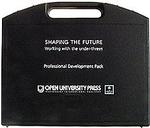- ホーム
- > 洋書
- > 英文書
- > Business / Economics
基本説明
Including knowledge management and e-learning, accounting, and business relationships.
Full Description
Information technology has come to play an important role in organizations over the last few decades. Though it began as an entity dealt with by specialists, IT has evolved to become an everyday tool with both operational and strategic impacts. Most modern organizations have adopted different forms of IT, and become dependent on their computer-based information systems and their peripherals for everyday operations. Information technology offers opportunities to increase efficiency, customer value, and competitiveness.
Given the financial investment in IT required by organizations to remain competitive, IT has become a resource that needs to be managed. Management and Information Technology evaluates organizations' utilization of IT including knowledge management and e-learning, accounting, and business relationships. Presenting theories to help the reader understand the varying roles IT can occupy in different organizations, this volume illustrates the ways in which IT has become a key strategic tool.
Contents
1. Introduction. Peter Dahlin and Peter Ekman 2. Balancing between Entrepreneurship and Control Through the Use of Management Control Systems and Information Technology. Eva Lövstål 3. The Challenge of Differing Actor Groups within an Enterprise Resource Planning Project. Gunilla Myreteg 4. Expanding the Knowledge Structure of Firms: An Illustration of How Organizations Experiment with Information Technology to Harness the Knowledge of the Masses. Leon Michael Caesarius 5. Management of Asynchronous and Synchronous E-Learning. Stefan Hrastinski 6. The Limitations of Enterprise Systems for Marketers and Salesmen. Peter Ekman 7. Integration of Information Technology in Business Relationships: A Managerial Issue. Cecilia Lindh 8. Internal Accounting Information Systems and Inter-Organizational Coordination: Episodes Involving Balanced Scorecard and Differential Customer Accounting. Lars Frimanson 9. Expansion of IT Business Through Cross-Industry Mergers and Acquisitions. Peter Dahlin 10. Measuring the Impact of IT in the Swedish Logging Industry. Maria Kollberg Thomassen 11. IT Innovation Influence and Industrial Transformation: The Case of the Swedish Graphic Industry. Mathias Cöster 12. The Do's and Don'ts of Digitization—IT and Organization in Health Care. Pontus Fryk 13. Technology Acceptance Research: Reflections on the Use of a Theory. Christina Keller 14. Developing Patterns of Explanations: Methodological Considerations When Analyzing Qualitative Data. Magnus Hansson List of Contributors Index
-

- 電子書籍
- 偽装結婚のはずが愛されています~天才付…
-

- 電子書籍
- Mお嬢様とS執事 分冊版 8 マーガレ…
-

- 電子書籍
- レクリエ 2015年1・2月 レクリエ
-

- 電子書籍
- ゆかりズム 1巻 花とゆめコミックス




